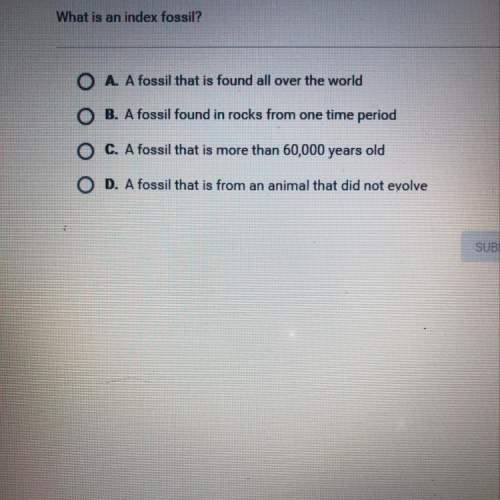
Biology, 05.01.2020 22:31 andyromero
Acertain widely distributed mammalian species remained unchanged for about 30 million years. most members of this species lived on a fertile plain, but some members (that were less well adapted) survived in low numbers in the surrounding mountains. they adapted and evolved to this area and became significantly different from their relatives on the plain. a sudden meteorite attack struck the plain and destroyed the plain population. the mountain population was unaffected and as the plain environment recovered moved to the plain. in the absence of competitors, they underwent a very rapid population explosion. which mode of evolution does this example explain?
a. gradualism
b. punctuated equilibrium
c. microevolution

Answers: 2


Another question on Biology


Biology, 22.06.2019 02:00
2. given that most biochemical (other than coal) rocks react with hydrochloric acid, what does that tell you about organisms?
Answers: 1

Biology, 22.06.2019 02:40
What advantage does a crop that undergoes vegetative reproduction have over plants that start from the seed? 1points a they store nutrients. b they can travel farther. c they experience more genetic variation. d they only occur in high-resource environments.
Answers: 1

Biology, 22.06.2019 03:30
Which of the following is an effect of the uneven heating of the earth by the sun? a sea breeze a land breeze a convection current all of the above
Answers: 2
You know the right answer?
Acertain widely distributed mammalian species remained unchanged for about 30 million years. most me...
Questions







Mathematics, 18.02.2020 17:43













Computers and Technology, 18.02.2020 17:44




